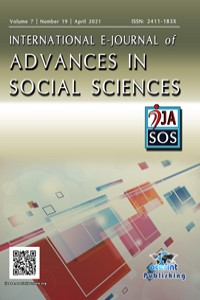Abstract
References
- AAUW Education Foundation (October 14, 1998). Technology Gender Gap Develops White Gaps in Mathematics and Science Narrow AAUW Foundation Report Shows. Retrieved April 23, 2011, from http://www.aauw.org/2000/ggpr.html
- Aggarwal, A. (2000). Web-Based Learning and Teaching Technologies: Opportunities and Challenges. London; Idea Group Publishing.
Abstract
Over the years, education has been a source of sustainable development in many countries in the world. Unfortunately, even though it is a potent weapon for measuring a country's development, it has suffered setbacks resulting in poor quality education. Quality Education is a significant prerequisite for developing every country's one of the United Nations' sustainable development goals. According to the United Nations, every child is entitled to quality and accessible education equipped with skills useful for their future development. For a child to enjoy quality education regarding the United Nations Sustainable Development Goals, technology is necessary. Technology in education has helped solve many problems, making life-learning processes enjoyable and exciting for every child to learn. The adoption of technology in education comes with many advantages embedded in improving communication and research. However, some challenges have affected easy access to learning, which has led to low participation in educational activities. This study embraces the Modernization theory, which talks about the description and explanation of transformation processes from a simple traditional society to a more complex modern society in all spheres of life. Hence, this paper seeks to examine the challenges and impacts of technological advancement in education in Nigeria.
References
- AAUW Education Foundation (October 14, 1998). Technology Gender Gap Develops White Gaps in Mathematics and Science Narrow AAUW Foundation Report Shows. Retrieved April 23, 2011, from http://www.aauw.org/2000/ggpr.html
- Aggarwal, A. (2000). Web-Based Learning and Teaching Technologies: Opportunities and Challenges. London; Idea Group Publishing.
Details
| Primary Language | English |
|---|---|
| Journal Section | Makaleler |
| Authors | |
| Publication Date | May 7, 2021 |
| Submission Date | February 2, 2021 |
| Published in Issue | Year 2021Volume: 7 Issue: 19 |
Contact: ijasosjournal@hotmail.com
The IJASOS Journal's site and its metadata are licensed under CC BY
Published and Sponsored by OCERINT International © 2015- 2025


